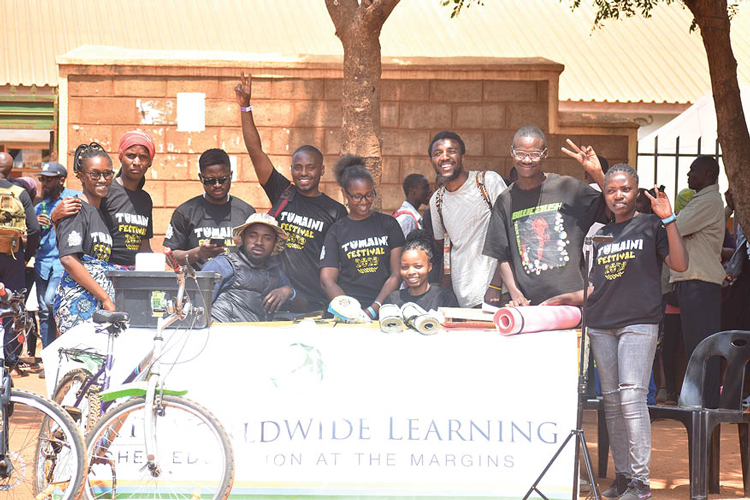Students and graduates of the Ecotourism programme at the Dzaleka Refugee Camp (Malawi) have put into practice the learning they acquired in the online course taught by IQS-URL and Jesuit Worldwide Learning (JWL) for the past three years.

Foto: Jesuit Worldwide Learning
Students and graduates of the Ecotourism programme at the Dzaleka Refugee Camp (Malawi) have put into practice the learning they acquired in the online course taught by IQS-URL and Jesuit Worldwide Learning (JWL) for the past three years.
The Tumaini Festival brings together members of the refugee community and plays host to a unique cultural event. This year, students applied the knowledge and skills they have acquired by offering attendees an immersive experience through guided tours that revealed Dzaleka's untold stories. The visits also highlighted sustainable practices and initiatives implemented in the refugee camp, including community gardens, recycling programmes, and educational projects. Students and alumni from the programme shared their knowledge about environmentally-friendly practices and the importance of preserving the environment.
Currently, Ecotourism courses are being offered at the Jesuit centre in Chiang Rai, Thailand; the Loyola Campus in Hatton, Sri Lanka; the Jesuit Refugee Service in Kampala, Uganda; and the Dzaleka Refugee Camp in Malawi. The course addresses the needs of communities around the world in terms of promoting responsible tourism that makes it possible to generate income while also preserving the fragile resources of the communities.
Ecotourism as a sustainable, emancipatory path
The first edition of the online training course "Community Based Eco-Tourism" was developed by the teaching and research staff of the current IQS tourism department, and was launched in academic year 20-21 in Thailand. It was commissioned by JWL, an international Jesuit organization that provides "Higher Education at the Margins," that is, training for people and communities that are marginalized by society whether due to poverty, location, lack of opportunities, conflict, or forced displacement.
The course is structured under Ignatian pedagogy. Through these programmes, people are being trained to become responsible professionals who act with compassion and contribute to a more just world, starting from within their own background and community so they can then renew the social, economic, and political ecosystem in which they live and, above all, face challenges with a human perspective.
At IQS, ecotourism is at the forefront both in educational programmes and in the Undergraduate Programme in Tourism and Hospitality Management, not to mention the research lines and projects developed by the Chair of Tourism, Sustainability, and Responsible Innovation.










